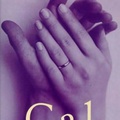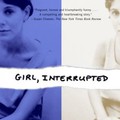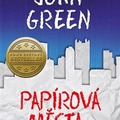Alex Garland: The Beach

Just as Jane Austen’s Pride and Prejudice is my favorite spring read, The Beach is my favorite summer read. I wouldn’t ever read this novel in any other season, but on every second or third summer I get an irrepressible craving for it and then I must re-read it without much delay. I’ve read The Beach this summer for about the fourth time, and since I’ve never before stopped to contemplate why I love this novel so much, now I made it my purpose to try to find out what’s so good about this novel that I must keep re-reading it.
The hero of The Beach is Richard, an English backpacker tourist (oh well, not a tourist – a traveler) traveling in Thailand. At the beginning of the novel he just arrives in Bangkok, occupies his pleasantly shabby room in a cheap hostel and sets out to enjoy life. Only something terrible happens during the first night of his stay: the man living in the neighboring room commits suicide and leaves a map to Richard which shows the way to a mysterious island, a kind of earthly paradise not yet destroyed by the crowds of tourists. Richard shares his secret with a nice young French couple living in the same hostel, and the three of them are soon on their way to find the island.
Their adventurous and not exactly safe quest is a success, and the three young travelers soon arrive in the island which indeed seems like their wildest dreams come true. The other inhabitants of the island are nice and friendly, and everyone finds a place for themselves. The days on the island are spent with pleasant work and the evenings with even more pleasant pot-smoking (the island-dwellers have a constant supply of marijuana from a secret plantation on the other half of the island), and the only worrisome thought in the islanders mind is that perhaps other travelers will find their way to the secret eden – but at first not even this worry seems too serious. Then of course things take a turn for the worse and soon the island no longer seems the most marvelous place on earth.
I guess simply the word „island” (and all its connotations) strikes some chord in everyone’s soul. An island can be everything and the opposite of everything. An island is mysterious, exciting, appealing and somewhat dangerous; an island is quiet and safe haven, a place where you can hide from everything and everybody. An island is shut of from the rest of the world, and this implies a quiet rest far from the madding crowd and terrible loneliness at the same time. Alex Garland plays wonderfully with these duplicities both as regards the concrete description of and the implied „meanings” suggested by the island.
As regards, for instance, the depiction of the island, it is in a national park and it cannot be legally visited by tourists. From this we might conclude that, ironically, the earthly eden can only be created using illegal means, and it cannot be created at all at a place where there are other people present (we might say, hell is other people). The heroes of this novel manage to create their own little paradise by ignoring the rules, but their perfect place is in fact not that perfect: one hald of the island is ruled by grim and cruel Thai men who are also happy to exploit the wonderful opportunities arising from the seclusion of the island, and they guard a huge marijuana plantation, and they wouldn’t hesitate to use force to keep it safe.
And as regards the behavior and the emotions of the islanders, these can also be characterized by a kind of duplicity: the people on the island have a good time and they live in a seemingly harmonious community, but, as Richard mentions more than once, the place seems to exert a hypnotic and maddening force on everyone. Stepping on the island, everyone forgets about the outside world, and since they don’t have to fear any consequences, people tend to act irrationally while they carefully repress their fears and the memories of their past.
The collective madness invoked by the island doesn’t spare anyone, least of all Richard. Although he has very good physical and mental abilities and he perceives before anyone else that all is not well on the Beach, he cannot free himself from the strange influence of the island, and as time passes, he starts to behave in an exceedingly irrational, irresponsible and inhuman way.
By the way, Richard is quite an intriguing character, and the way others see him is just as interesting. Richard considers himself very clever and basically an outsider on the island: he only wants adventure, he doesn’t want to tie himself down forever, and even though the others accept him quickly, he keeps his distance from everyone. Due to his stand-offishness, he can see what’s going on from an outsider’s point of view, he can see how power is distributed and he can also see where the weak points of the beautifully woven island routine are.
But Richard is also the one who is the most fully immersed in every value and ideal the Beach stands for, partly because he seems to be singled out by the man who commits suicide in the beginning and who was one of the three founding fathers of the Beach by the fact that he leaves the map to Richard. This man, Daffy often comes back later to haunt Richard in his dreams (and later even when he is awake), and the other islanders start to consider Richard to be a copy of Daffy because both his appearance and his role on the island gets more and more similar to those of Daffy.
And if for some reason the exciting-claustrophobic island atmosphere, the sweeping story and the intriguing characters don’t make the novel thoroughly enjoyable for you, you also have the chance to enjoy the literary references abounding in the novel, or you can ponder over the „message” of the story, but I won’t go into details about the message, as I don’t want to be too overtly spoonfeeding, because Garland himself is not spoonfeeding the reader, either.
As regards the literary references, I only mention a few: for instance, the references to William Golding’s The Lord of the Flies is quite obvious, but there are other, more obscure (and consequently more enjoyable) references in the novel. One is a subtle reference to Joseph Conrad’s The Heart of Darkness. At one point towards the end of The Beach when the apocalypse is quite near, Daffy, coming out of the jungle, keeps repeating the words: „the horror, the horror.” This may well refer to The Heart of Darkness, where the dying Kurtz also repeats these words before he dies. Of course this may be a coincidence – but I very much like to think that it is not.
I mentioned at the beginning of this entry that I tried to answer the question why I like this novel so much. Now, I came to the conclusion that I like it because of all the things I mentioned before and the way this material is handled. The Beach is an exquisitely readable novel: the chapters are usually no more than four or five pages long, there are no long descriptions or soul-searching digressions, things happen at a crazy pace and there is quite a lot of exciting tension in the story. A typical beach read, we might say. But besides all this the novel is full of deeply unsettling elements some of which I talked about earlier: the way mass psychosis and isolation are depicted; the duality (or indeed: the split) which characterizes both the island and its inhabitants; or the constant dilemma faced by every single backpacker: the wish to find and possess unique, unspoiled spots and the equally strong wish to show off the beauty they found to others, which of course entails that no unspoiled place will remain untouched for long.
And I happen to like it immensely if a novel is like this and offers me this kind of choice: I might simply enjoy it for the story and I might go a bit deeper and try to explore its hidden themes. So I guess this is why I keep re-reading The Beach, and I’m pretty sure I will read it several more times in the future.





